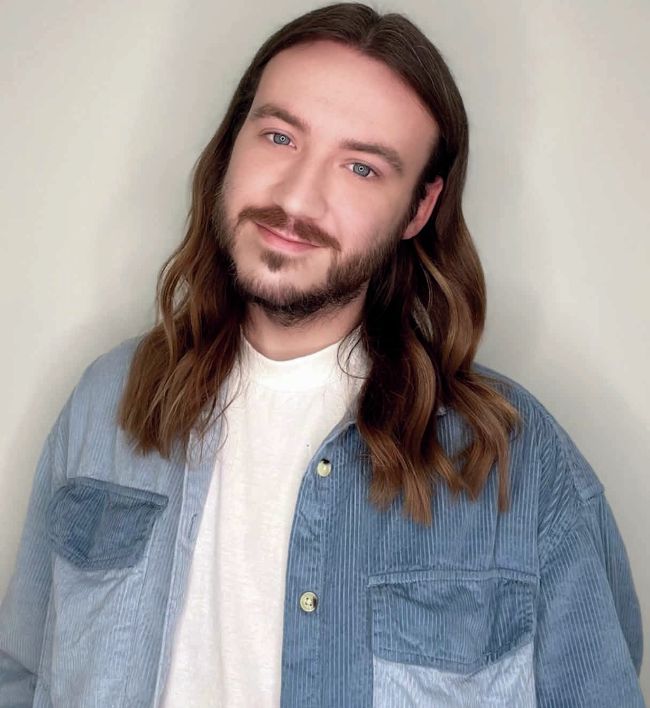THE FACES
THE PEOPLE IN ACTION
WHAT WOULD RHYS ANDREWS DO?
The founder of Rhys Andrews Salon in South Wales remembers how tough it can be starting out… and how he ensures respect for apprentices in his business...
From a young age I knew I wanted to be a hairstylist. I jumped in headfirst and started my career at the age of 14 as a Saturday boy, later starting a full-time apprenticeship at the age of 16. Not knowing the trials and tribulations I was about to undertake when starting my career, I was as compliant as I could possibly be to show how much I wanted this position.
From the very early stages I could see that I was stuck in the endless cycle of cleaning skirting boards and washing bowls, not thinking that this would be the start of my career. I remained quiet and followed whatever tasks were given and quickly learnt that this was just “how it was” and I was “paying my dues” to the stylists above me. At such a young age and not knowing many others my age going through an apprenticeship, I treated this as part of a normal method of training, but soon found that this was me being taking advantage of. Past experiences for all of us can be damaging for our future and for many can lead to us giving up on what goals we set out to achieve and what dreams we have longed for. I, like so many others, feel that the younger generation of the hairdressing community need to be protected at all costs. Hairdressing apprentices are put off by terrible past experiences or shared experiences of other apprentices and end up quitting their training. This leads us to potentially losing exceptional hairstylists.

Recruiting for the next generation of hairstylists seems to be one of the hardest tasks for salon owners right now. When finally finding keen apprentices, the pressure to try in every single way possible to keep the creative fire alive can sometimes feel impossible.
So many apprentices starting out need to be educated in what their role is within a salon and how much they contribute to a business. It's about teaching them the very basic skills but showing them the most intricate of skills, too. There doesn't need to be a timeline to how they are taught.
Treating apprentices like actual hairstylists from the get-go is key to showing them that they are included in this industry and not just the hired help. We have all been in their shoes and we have all dreamt the exact same way they do. That’s why they need to be shown the respect and given the protection that so many of us didn’t get throughout our own apprenticeships.
@rhysandrewssalon
WHAT MADE ME
ANDREA DORATA Dorata Hairdressing @doratamarlow
My family has made me who I am, although I didn’t realise it at first. Growing up in Sicily, I’d loved art and design and wanted to be an architect. But when it was time to go to university, I realised I didn’t want to study in an academic setting anymore. I tried a few different vocations; two of my three siblings and all of their friends were hairdressers, so I’d grown up around it. However, I didn’t have my lightbulb moment until I was walking past a salon one day and it took my breath away – it had a stunning interior, awards in the windows, and I walked in and asked for a job as an apprentice. As I was starting late, aged 19, I was determined to do my hairdressing qualification very quickly, and soon moved to where my brother Angelo was a trainer. We would stay behind in the evening after a full day, helping me learn. Angelo was my biggest influence, he just has a natural way with hair. I remember studying how he’d move his hands; he had a really spontaneous technique that always created modern but elegant styles – I was in awe of that. Over the years as I developed my own style, I always tried to maintain that touch that I learnt from him.
With my sister Simona, we’ve learned to utilise our individual strengths to build two thriving salon businesses. They are my number one supporters in everything I do.